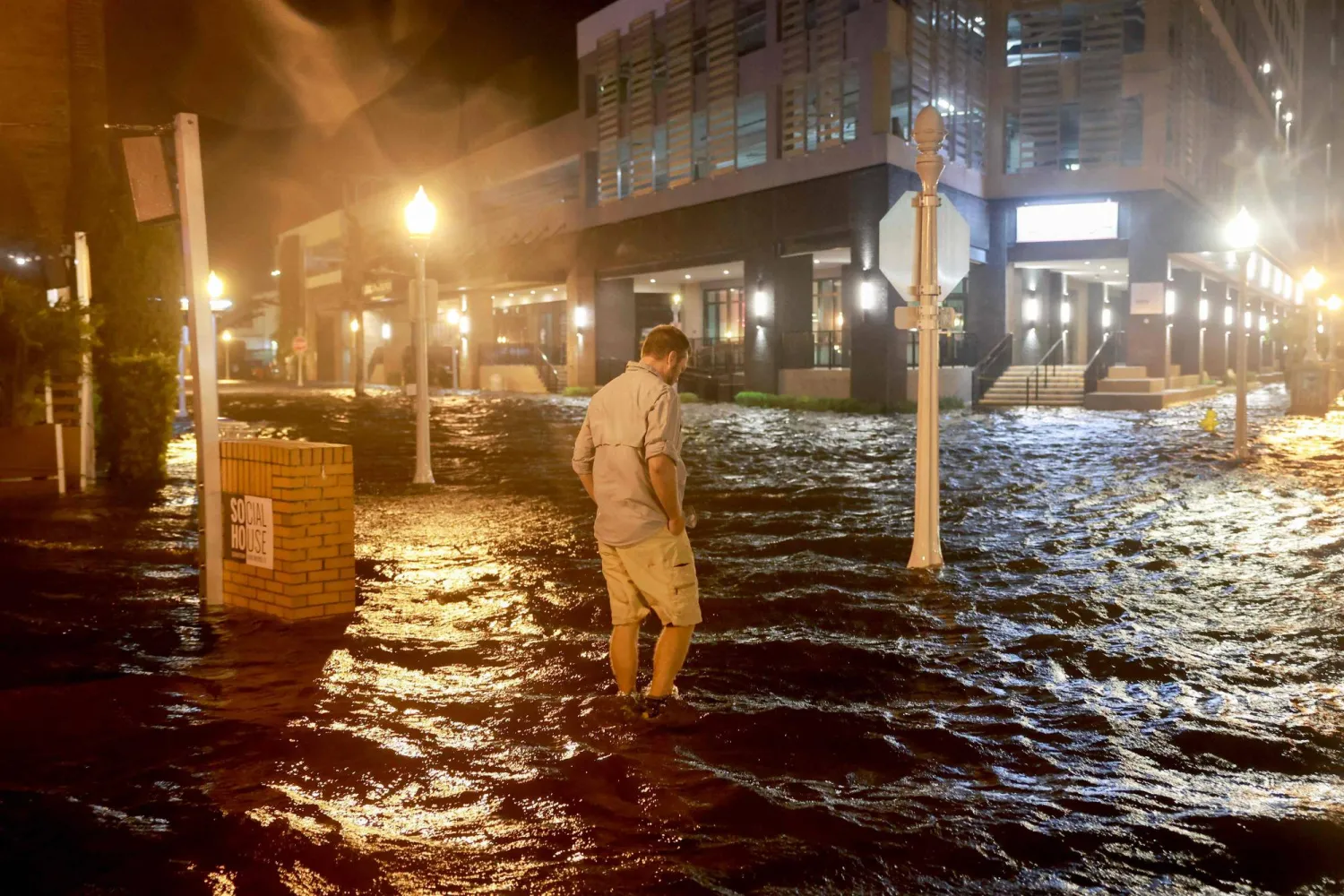Hours before Milton made landfall on Florida's west coast, many were caught by surprise when the hurricane's outer bands spawned deadly tornadoes hundreds of miles away.
In the eastern city of Fort Pierce, parts of a retirement community looked as if struck by a bomb after two tornadoes wreaked chaotic havoc, killing at least five people.
"Do I feel lucky? Damn right I do," said Ralph Burnett, whose house is located just a few hundred feet (dozens of meters) from the decimated Spanish Lakes Country Club neighborhood.
Police have cordoned off all entrances to the community -- but drone footage reveals several homes that have been completely obliterated and a substantial number that sustained major damage, AFP reported.
Burnett's next-door neighbor, Susan Stepp, said it was "horrible, just horrible. I heard some pretty gruesome things" about the deaths.
She and her husband Bill had just returned days earlier from a trip to northern Michigan in their RV, which now lies on its side in their front lawn.
"The tornado came through and picked up my 22-ton motor home and threw it across the yard," said Bill, 72, expressing "absolute astonishment" at the tornado's power.
While people were understandably focused on the core of the hurricane, meteorologists were also worried in the days prior that Milton could produce tornados in eastern Florida, tornado expert Jana Houser told AFP.
The outer hurricane bands are "notoriously the location where tornadoes form," said Houser, an associate professor at The Ohio State University.
Hurricane-produced tornadoes are less likely to form over water, but as the winds in a hurricane's outer bands move over land, conditions become right for the formation of twisters.
While Houser was unable to link the specific tornados to climate change, she said Milton was "incredibly intense, very large" because of the increasingly warm temperatures in the Gulf of Mexico, which give "more fuel to the hurricane to work with."
'Worst one'
Further north, in Cocoa Beach, one tornado swept from the ocean westward, blowing out almost all the windows of a hair salon and tearing a chunk of roof off a bank. No injuries have been reported.
Next door, Katherine and Larry Hingle said they were on their condo porch watching the water rise, when the tornado came through around 5:00 pm.
"I said 'it sounds like a train's coming'" Katherine, 53, told AFP while out to walk their dog and survey the damage.
Larry, 52, said the wind changed directions "violently fast," with the water outside churning ominously.
"We had seen the warnings on TV, but it's very rare that you get one in Cocoa Beach, but then again this is a rare storm, so it's pretty wild."
The sound of the tornado was "surreal," said Katherine, with Larry describing "crunching metal, debris, just terrible noise."
Nearby, a resident in his 80s, who declined to provide his name, was surveying damage to vehicles in an apartment parking complex.
A chunk of tiled roof had been ripped off in the tornado, smashing a nearby car's windshield and the roof of a Jeep.
The resident said he went to a hotel because a falling tree had smashed his air conditioning.
"I've been through a lot of storms but this was the worst one," he said.
The tornado sounded "just like they say, a train coming by."
In Fort Pierce, Susan Stepp was preparing to go stay with her sister, who had electricity.
"We're just glad that our lives weren't taken and that we're okay and that's the main thing," the 70-year-old told AFP.
"You don't like all this (damage) and it's going to de-beautify your house, but... you can't come back from the dead."
Far from Eye, Hurricane Milton's Deadly Tornados Rampaged Florida

Brandon Marlow walks through surge waters flooding the street after Hurricane Milton came ashore in the Sarasota area on October 09, 2024, in Fort Myers, Florida. Joe Raedle/Getty Images/AFP

Far from Eye, Hurricane Milton's Deadly Tornados Rampaged Florida

Brandon Marlow walks through surge waters flooding the street after Hurricane Milton came ashore in the Sarasota area on October 09, 2024, in Fort Myers, Florida. Joe Raedle/Getty Images/AFP
لم تشترك بعد
انشئ حساباً خاصاً بك لتحصل على أخبار مخصصة لك ولتتمتع بخاصية حفظ المقالات وتتلقى نشراتنا البريدية المتنوعة







